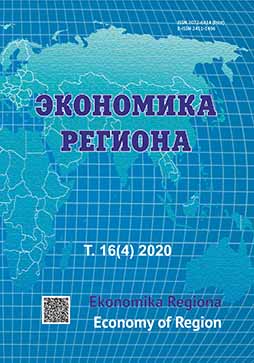Региональное развитие и система образования в условиях цифровой трансформации
Regional Development and the Education System in the Context of Digital Transformation
Author(s): Askar Akaevich Akaev, Dmitry Desyatko, Alexander Petryakov, Askar Islamovich SarygulovSubject(s): State/Government and Education, Social development, Socio-Economic Research
Published by: Институт экономики Уральского отделения Российской академии наук
Keywords: uneven regional development; digital transformation; skill level; education system; labour market; unemployment; spatial inequality; employment structure; human capital; labour supply and demand;
Summary/Abstract: The paper aims to assess how the existing imbalance between the education system and the regional economy influences the formation of spatial inequality and uneven economic development. Based on the structural and comparative analysis of data on Russia and China as the members of the Organization for Economic Co-operation and Development, we demonstrate that the technologies of the 4th Industrial Revolution shift the demand for highly skilled labour force. This situation leads to the gap between labour demand and supply, as the education systems are oriented to the economic needs of the 3rd Industrial Revolution. We consider cross-country differences in the quantity of STEM graduates and researchers (science, technology,engineering, and mathematics) as a possible cause of spatial inequality in the context of digital transformation. Further, on the example of Russia, we apply correlation and regression analysis to show that the discrepancy between the skill level of graduates and market expectations contributes to regional development inequality. We demonstrate the strong relationship between the share of unemployed persons among the economically active population and the skills of the labour force for all federal districts of the Russian Federation. On average, an increase in the share of employees with higher or secondary vocational education by 1 %decreases unemployment by 0.32 %. Additionally, in all federal districts of Russia, there is a discrepancy between the economic need for highly qualified workers with higher education and the education system producing too many specialists with secondary vocational education. The discrepancy between the structure of skilled labour force produced by the education system and the employment structure in the labour market by 10 % increases unemployment by almost 1 %. The results of the study can be used by the government for creating the development strategy of the education system and reducing spatial inequality
Journal: Экономика региона
- Issue Year: 16/2020
- Issue No: 4
- Page Range: 1031-1045
- Page Count: 15
- Language: Russian

